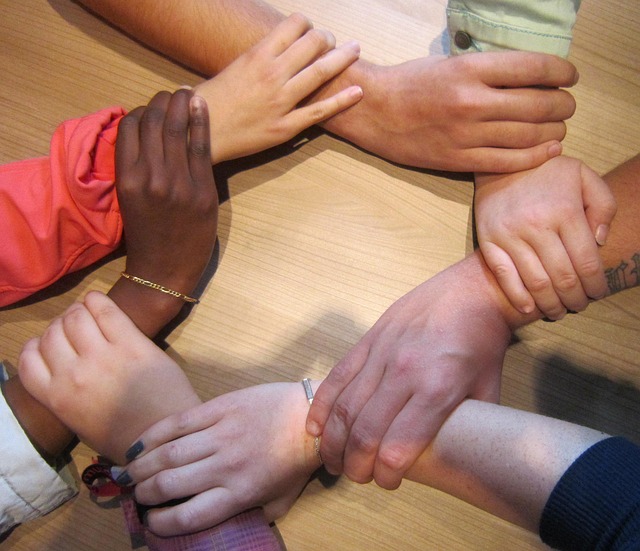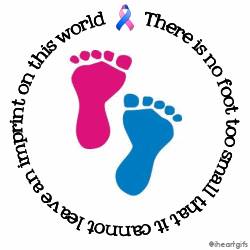
When a friend loses a baby or pregnancy, it’s really hard to know what to do and say. And often, the mother cannot really express what she needs.
The first year after pregnancy or infant loss is especially difficult. As a mother passes through all of the “dates” and baby anniversaries, that dreaded “year of firsts” can be extraordinarily painful.
Based on my experience of losing my daughter at two days old, and the experiences of many mothers I have interviewed, I put together a list of tips to help a mother during the first year in recognition of Pregnancy and Infant Loss Awareness Month.
Although these suggestions are helpful, keep in mind there is not a one size fits all solution. For example, the words “I’m sorry” comforted me, but I have heard multiple people say they hate to hear that. So, I offer the advice of simply saying “I am here for you and will listen if you’d like to talk about your baby.” Many mothers just really want to talk about their beautiful babies.
It’s also important to remember that grief has no timeline. Yes, the first few weeks and months are the hardest, but the average timeline for heavy grieving is 18-24 months.
Here are some actions you can take to support your friend or loved one through their loss.
Months 1-3
Visit, but not too often. If she says she does not want visitors, text, call, send cards, and IF you are a close friend who knows her well, perhaps show up anyway to drop off some food or a gift of encouragement. I thought I wanted to be alone in my grief after I lost my two-day-old baby but then found myself very lonely when people actually listened. When someone made the effort to reach out, I was always pleased to receive them. (This is not the case for everyone, so use your best judgment depending on how well you know the person.)
Take meals. More than once. There are many days that will be overwhelming throughout the first few months and even perhaps the whole first year. Not having to worry about making dinner can be an immense relief. Sites such as Care Calendar, Meal Train, or TakethemAMeal.com are easy to access and have online calendars for simple meal coordination with other friends and families.
Talk about it with her and acknowledge the baby. Do not pretend like nothing happened. Be sure to ask what she is comfortable talking about. Some mothers prefer not to talk about it, yet others find such healing and comfort in saying their baby’s name. This baby is significant to the mother, and it is important to the mother that others recognize and remember the baby too. Even if only pregnant for a short time, mothers bond with their babies, and appreciate being recognized as a mother to that child. The baby was real.
Offer to help put away baby items. This is an extremely difficult task for a mother grieving the loss of her baby. You can volunteer to pack up clothing, toys, or nursery items and remove them for her if your friend is not up to handling this chore. Or volunteer to help her if she needs some support while she is doing this task.

Months 4-6
Continue some or all of the above and also:
Help with childcare. If your friend has other children, take them for an afternoon, evening, weekend, or whatever you can handle.
Send cards randomly. Not just once, but periodically. Especially around any significant dates that could trigger sadness like the due date, the anniversary of the death, or the date when a diagnosis was received. Just when you think “she should be over it,” send another card. The death of her baby is not something a mother moves on from easily.
Take her out. Any place. And if she says no to your invitations, keep inviting her. But don’t press it too hard. Eventually, she will be ready. If she won’t go out, maybe she’ll be receptive to a girls’ night in.
Show her you also remember the baby. Bring trinkets with the baby’s name on it if she appreciates them. If you are unsure, make donations in the baby’s name to appropriate foundations. (Be sure to ask the parents if they have a preferred philanthropy.)
Encourage her to find a baby loss support group. Other mothers who have experienced the death of a baby can offer unique support. While you can listen to her all day, if you have never experienced this type of loss, it’s difficult to understand, and certainly difficult to provide comfort. Your friend will benefit from being around mothers who “get it.”

Months 6-12
Continue some or all of the above and also:
Be patient. Those who have never experienced a loss may find it very difficult to understand how a mother can grieve and mourn for so long. However, six months is not a long time when you consider she was planning on raising this child for a lifetime. And this loss will stay with her… for a lifetime. She is not angling for attention. She is hurting. And sometimes year two is even more difficult.
You Can Make a Difference, Even if it Doesn’t Feel Like It
If you attempt even a fraction of these steps, you are an outstanding friend and will make a big difference in supporting the grieving process of your friend. Of course, you can’t take your friend’s pain away. But you can do the next best thing: you can be there for her while she goes through it and hopefully ease her burden with your sturdy, non-judgmental presence.
 Resources for Those Experiencing Loss
Resources for Those Experiencing Loss
Below are resources that can help someone who is experiencing the loss of a child.
Local Resources:
Online Resources and Support:
- First Candle
- Glow in the Woods
- Still Standing Magazine
- Molly Bears (non-profit that provides a personalized bear that is the same weight as your baby to hold in your empty arms)
- Sunshine After the Storm
- Grieving Parents
Books:
- Sunshine After the Storm: A Survival Guide for the Grieving Mother by 30+ moms and dads who have suffered through the loss of a baby or child
- Empty Arms by Sherokee Ilse
- Grieving Parents – Surviving Loss As A Couple by Nathalie Himmelrich
Have you experienced the loss of a child or helped someone who has? What did you find helped the most during the first year?















